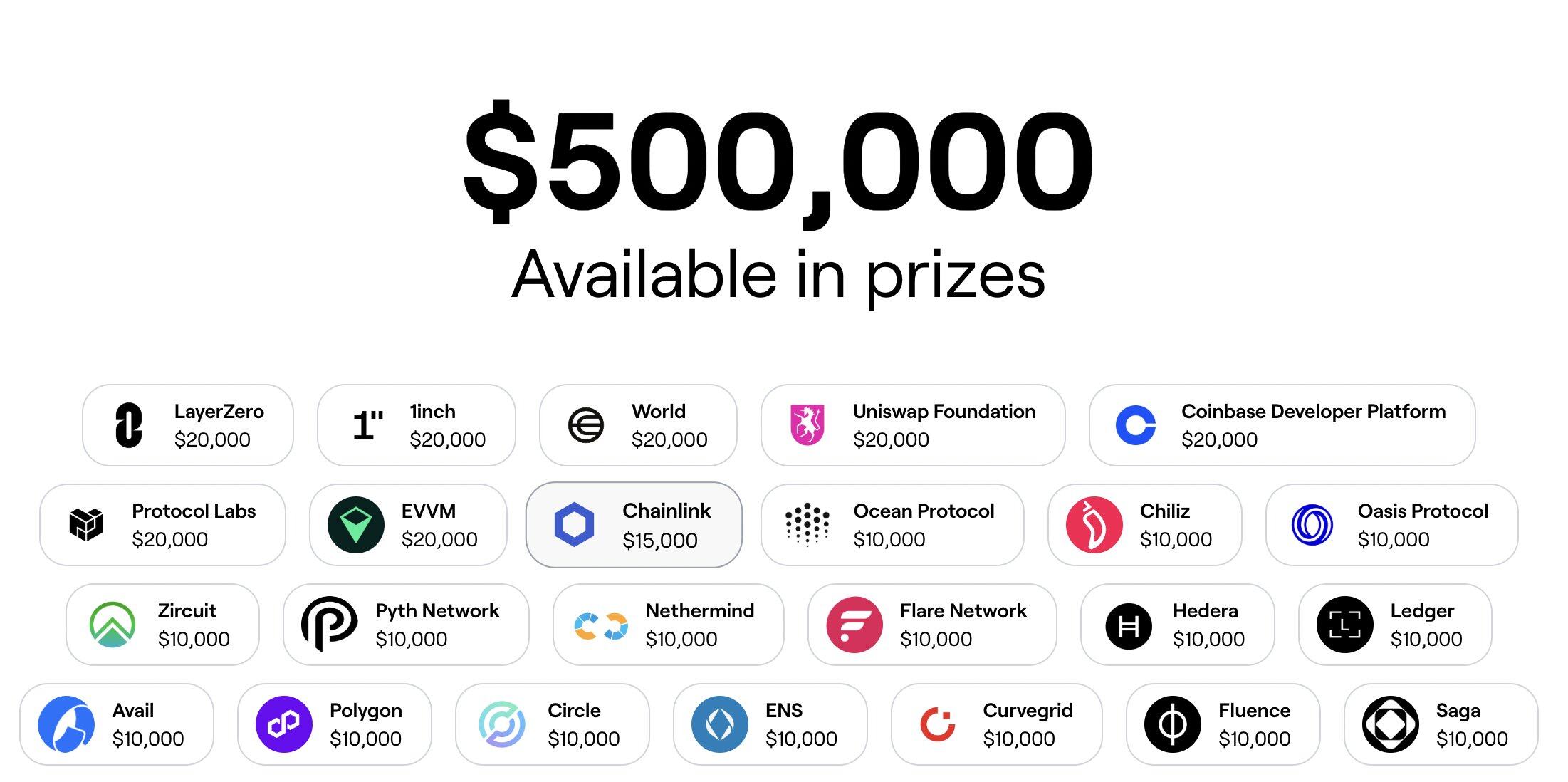Original article from Uttam
Compiled by Odaily Planet Daily Golem ( @web3_golem )

If you've spent even a few months in the cryptocurrency space, you've probably realized how lucrative it is for developers. Unlike traditional tech careers, where climbing the career ladder can take years, cryptocurrency is growing rapidly, salaries are global, and talent is prioritized over connections or residency.
Over the past few years, developers have become the backbone of the ecosystem. From NFTs and DeFi to rehypothecation, modularity, and Layer 2, every major narrative has been driven by developers who showed up early, built, and persevered. The lesson is simple: if you stick around long enough and keep building, this industry will reap rich rewards.
The following are the most practical and proven ways to make money as a developer, based on experience, observation, and how the ecosystem actually works.
1. Find a class (no kidding)
The easiest and most stable way to make money in the cryptocurrency field is to find a job. Cryptocurrency companies usually pay well and most of them are remote.
This means that even if you’re in a small town in India, the Philippines, or Brazil, you’re likely to earn salaries comparable to those in developed countries. Positions like full-stack developers, smart contract engineers, protocol developers, and infrastructure engineers often come with six-figure salaries, generous token bonuses, and flexible work arrangements.
All you need is skills and curiosity. Learn a programming language like Solidity, Rust, or TypeScript, build some demo applications, and contribute to open source. Once you have something to show, the doors of opportunity will open quickly. Crypto startups are always looking for developers who can deliver results, not just talk.
2. Participate in hackathons: The fastest way to earn cash and credibility
Crypto hackathons are a constant stream of activity, with one happening roughly every month. Platforms like ETHGlobal, Encode, Colosseum, DoraHacks, and Devfolio all host hackathons, with prize pools ranging from $100,000 to $500,000.
And it’s not out of reach. I’ve seen people go from one hackathon to another and make $10,000 or $20,000 each time. Once you understand what sponsors want, such as integrated applications, creative use cases, or SDK adoption, you can win repeatedly.

ETH Global Hackathon: Prize Pool Up to $500,000
But the real benefits come after you win, as hackathons often open the door for developers to enter incubators, where you can get ample funding, mentorship, and VC introductions. This is how many established cryptocurrency startups got their start.
3. Funding: A hidden gold mine
Almost every chain, from Solana to Arbitrum to Base, has a grant program. These grants are non-dilutive funds (meaning you don’t give up equity) provided to developers building projects on their network.
Some of these projects are massive, with budgets running into the millions of dollars. If you already have a running dApp, consider applying for funding on multiple public chains. Many EVM-compatible blockchain networks pay fees directly to contracts deployed on their networks.
This practice is called "funding scams," and while it might sound unethical, it's actually possible. Developers can earn tens of thousands of dollars simply by deploying their apps to different ecosystems.
4. When the project is launched, even if it is "plagiarism"
This is an ideal path. You don’t need to completely transform DeFi to succeed. Sometimes, you can even make a fortune by “copying” existing applications and adapting them to new blockchains.
A recent example is a simple Uniswap-like application deployed on a new EVM blockchain that earned over $5 million in 30 days, all from gas fees and transaction fees. This is the beauty of the crypto industry: sometimes execution and timing are more important than originality.
This requires developers to pay attention. When a new network is launched, it usually lacks the necessary basic functions (DEX, cross-chain bridges, NFT markets). At this time, being the first project party is enough to dominate a niche market and reap rich rewards.
5. Take advantage of project airdrops (developer advantages)
Airdrops are one of the easiest and most exciting ways to make money, and as a developer, you have a huge advantage.
While retail investors are still clicking buttons on the testnet, developers who deploy contracts or integrate SDKs will receive priority allocations for airdrops. In the early stages of blockchains and protocols, developers are often the first to be attracted, not just users.
If a new project doesn’t have a token yet, developers should get in early to build, test their stack, provide feedback, and stay active; you’ll often get generous rewards when their token goes live.
6. Outsourcing
Not everyone in the crypto industry is tech savvy, in fact, most aren’t, and that’s where developers come in. Almost every day, non-technical founders and blockchain projects are looking for freelancers or development teams to work on their dApps, tools, or SDK integrations.
You can work directly with these clients, or you can team up with a few friends to form a small outsourcing development team. New blockchain projects often contact these teams before their mainnet launch to ensure their applications are ready for day one. These partnerships can be very lucrative, especially if you're an expert in a specific area.
Freelance work, fixed contracts, and development project partnerships can easily become your full-time source of income, which can sometimes even translate into token earnings later on.
7. Contribute to open source projects
This is also a unique opportunity in the crypto industry where developers can get paid (or airdropped) for open source contributions. Projects like Celestia, EigenLayer, and Succinct reward developers with sometimes life-changing payouts, even for contributions to Ethereum clients or documentation.
Besides the potential rewards, contributing to open source enhances a developer's credibility and network, and it's one of the few ways to learn and earn money at the same time.
8. Security Programs and Bug Bounty Programs
If you’re good at auditing or debugging, this is your playground. Many protocols run ongoing security bounty programs where developers can earn rewards for discovering vulnerabilities or inefficiencies.
Web3 platforms like Immunefi or Code4rena host competitive audits with bounties running into the hundreds of thousands of dollars. Even minor issues can earn rewards of $1,000 to $10,000, depending on the severity. This is a great way to gain a deeper understanding of protocol architecture and earn a good reward.
9. Develop tools for other developers
One of the smartest ways to profit long-term in crypto is to build an open-source tool that solves a real developer pain point. Think of practical tools like contract verification tools, SDK wrappers, testing frameworks, or analytics dashboards. These small tools can save others time, and once your tool is adopted, you can monetize it through sponsorships, donations, or integrations.
Projects like Wagmi, Hardhat, and Viem all began as open source projects, but now their maintainers receive funding from foundations, ecosystem partners, and even corporate partners. A prime example is swiss-knife , built by apoorv.eth as a public good that, over time, has gained widespread adoption within the developer community. This visibility has enabled him to secure multiple funding rounds, from Optimism RetroPGF to Gitcoin Grants, demonstrating that open source projects can be both impactful and lucrative.
The beauty of open source in the crypto industry is that exposure is opportunity, and your GitHub followers and community influence become your leverage. Every pull request, issue, and release can attract new job opportunities, grant proposals, and even investors who want to fund your continued development.
10. Sell courses to other developers
If you're a developer who can teach, this path is for you. Educating other developers through YouTube videos, Twitter, workshops, or newsletters can be very rewarding.
Once you have a loyal developer base, some projects will contact you, seeking collaboration or sponsorship to promote their SDK or integration. The developer audience is 10 times more valuable than the average retail investor, so projects generally need to pay higher fees to reach them.
You can combine education with your development, share your learning, showcase your projects, help others, and build a strong and monetizable personal brand.
Conclusion: Developers are always the winners
Being a crypto developer today is like being a software engineer in Silicon Valley in 1998, only more global, faster, and more open.
This career can be unstable and even chaotic, but it's also fair. This industry rewards those who actively participate, learn, and build. Whether you choose to work on a protocol full-time, release open source tools, or apply for grants, one thing is certain: as long as you stick with it, the money will find you.
So grab your laptop, start small, stay curious, and remember that in crypto, developers always win.
- 核心观点:加密行业为开发者提供丰厚回报。
- 关键要素:
- 高薪远程工作覆盖全球。
- 黑客松与资助计划奖金丰厚。
- 空投与外包机会收益显著。
- 市场影响:激励开发者涌入,推动生态创新。
- 时效性标注:中期影响。



